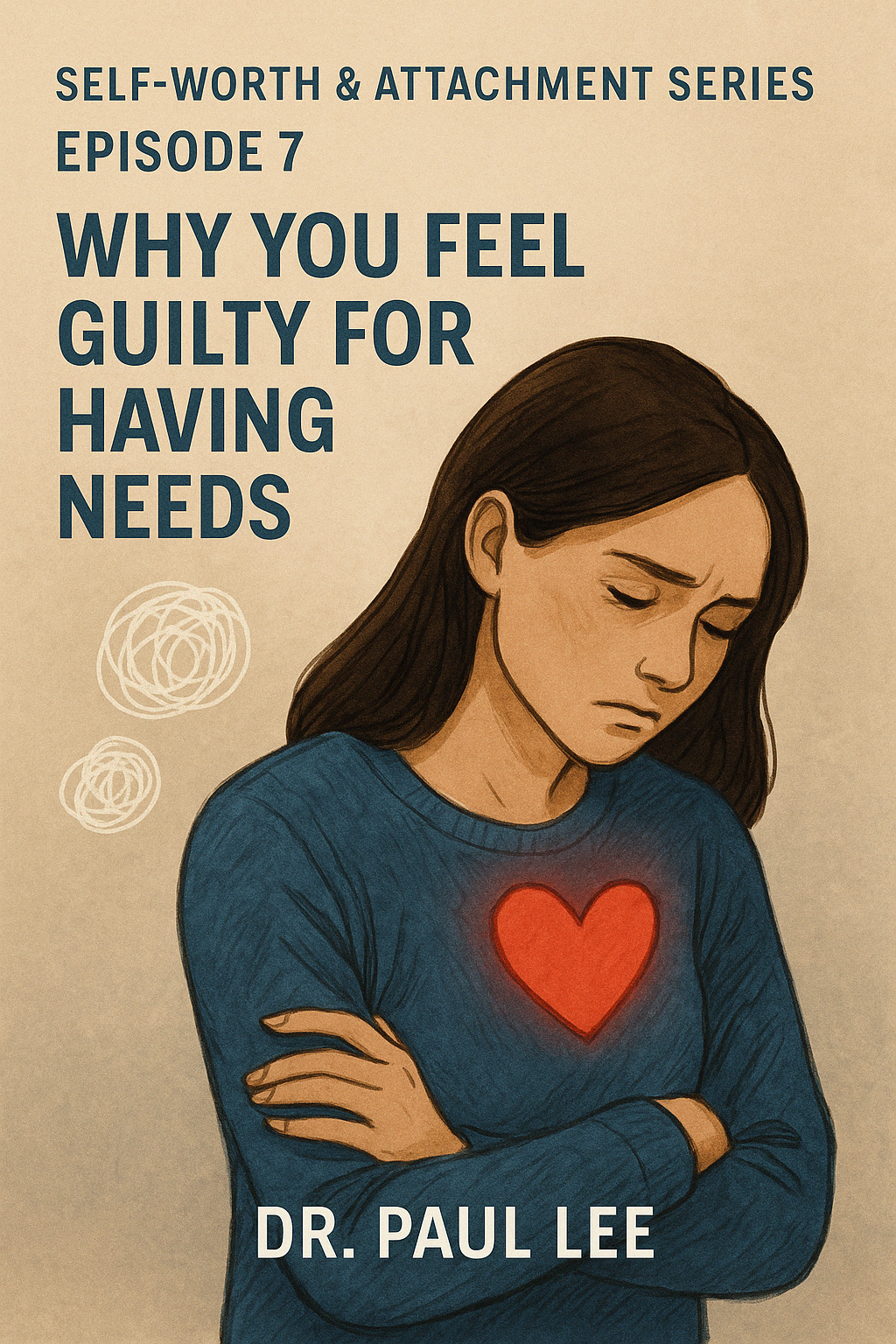Self-Worth & Attachment Series – Episode 7: Why You Feel Guilty for Having Needs
Self-Worth & Attachment Series – Episode 7: Why You Feel Guilty for Having Needs

You ask for something small—time, attention, comfort—and immediately feel a wave of guilt. You shrink your voice. You over-explain. You wonder if you're being "too much" for wanting something that others seem to expect so easily.
This guilt doesn’t come from weakness—it comes from wounds. In this post, Dr. Paul Lee explores why people with low self-worth and insecure attachment often feel guilty for simply having needs, and how to begin honoring your humanity without apology.
1. You Were Taught That Your Needs Are Inconvenient
If caregivers, partners, or authority figures in your life dismissed, mocked, or ignored your emotional needs, you likely internalized a damaging belief: “I’m a burden.” This belief wires your nervous system to anticipate rejection every time you ask for something.
So you learn to perform instead of express. You become the one who "never needs anything"—and silently hope someone will notice what you're not saying.
2. Guilt Becomes Your Emotional Default
When needs are associated with conflict or rejection, guilt shows up even when you're not doing anything wrong. You say “sorry” for needing rest, support, space, affection. But these are not luxuries—they are basic emotional nutrients.
Your guilt isn't proof you're asking for too much. It's proof you've been conditioned to believe your needs don’t matter.
3. You Learn to Love by Disappearing
In many insecure attachments, love is earned through silence. You’re praised for being low-maintenance, emotionally independent, “easygoing.” But what you’re really doing is vanishing—hoping your absence will make someone love you more.
The truth is: love doesn’t require self-erasure. If someone can only love you when you're quiet about your needs, it's not love—it's control.
4. Healing Means Reclaiming Your Right to Ask
You’re allowed to ask. You’re allowed to receive. And you’re allowed to do both without apology.
Healing begins when you stop justifying your needs and start normalizing them. The more you give yourself permission to be human, the more you’ll attract relationships that honor that humanity.
Conclusion: Your Needs Are Not a Problem—They’re a Compass
Your needs point to your values, your limits, your longings. They are the bridge between you and true connection.
So stop shrinking, stop apologizing, and stop trying to earn your right to exist. You were never “too much.” You just learned to believe you had to be less.
Written by Dr. Paul Lee
Founder of The Mind Behind Love
📘 Books That Help You Go Deeper
- The Power of Vulnerability by Brené Brown – How shame and guilt affect our ability to ask for what we need.
- Running on Empty by Dr. Jonice Webb – A deep dive into childhood emotional neglect and its adult consequences.
- Set Boundaries, Find Peace by Nedra Glover Tawwab – Empowers you to voice your needs without guilt.